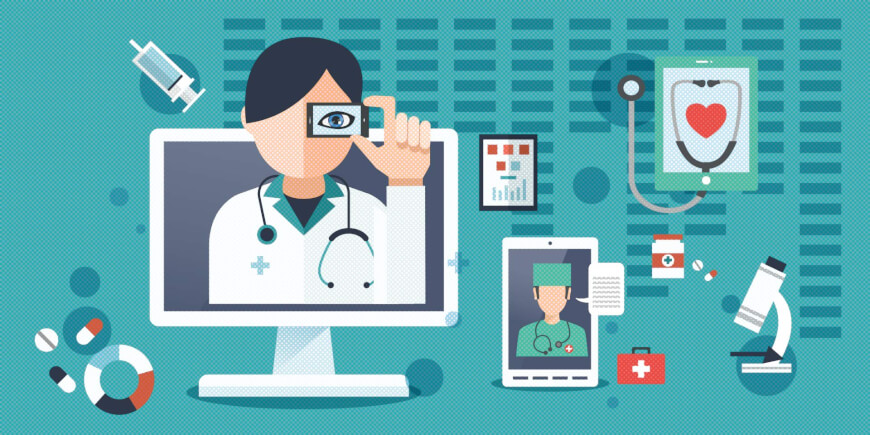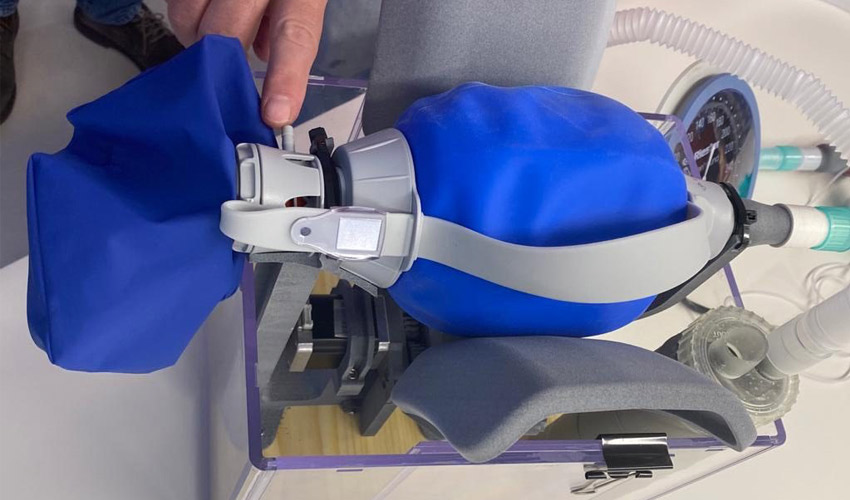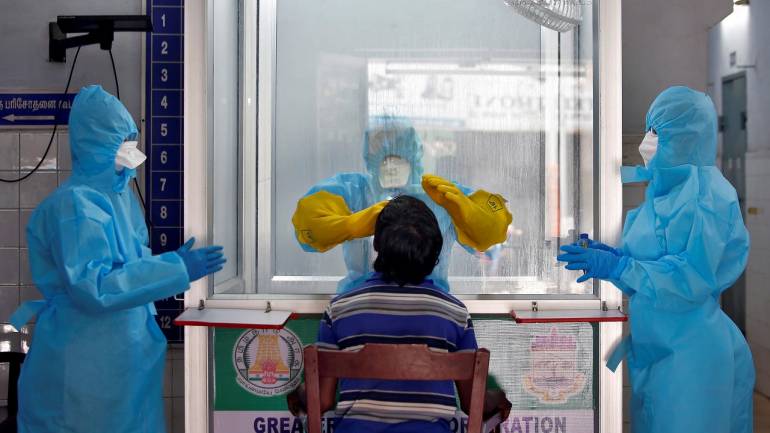
“Every cloud has a silver lining”
At a time when the entire globe is under the dark clouds of coronavirus, the healthcare sector in the country has a new ally in its fight against the global pandemic. Guess who?
A host of innovations and groundbreaking changes are making their way on to the Indian healthcare ecosystem during these unprecedented times. This new wave of innovations is boosting the healthcare system, by providing necessary support, in its efforts to contain the spread of COVID-19.
The healthcare industry, in general is exhibiting a positive intent towards the changes that are happening in and around. A mere shift from the conventional consulting room to the virtual consultation space is indeed a path-breaking journey when it comes to the Indian context.
Virtual consultation: A new era of Digital Health

As the coronavirus hit across boundaries with a devastating blow, the healthcare systems across the globe accepted that providing teleconsultations is the only way to significantly reduce unnecessary footfalls to hospitals and clinics. The World Health Organization (WHO) and the Centers for Disease Control and Prevention (CDC) have endorsed the use of telemedicine during the current pandemic. In India, the number of hospitals and doctors offering free teleconsultation and tele-information are rapidly increasing day by day. In fact, some hospitals have completely shifted to virtual consultations during these challenging circumstances.
Prior to the pandemic, the growth of telemedicine has been very slow. The apprehension among the medical practitioners regarding the legality of providing virtual healthcare has been a major contributory factor for the lack of exponential growth of telemedicine in India. However, considering the present scenario, the Ministry of Health has put up in the public domain, a comprehensive Telemedicine Practice Guideline which enables the registered medical practitioners to provide healthcare using telemedicine. All it required was a little help from the virus, to take telemedicine from sidelines to the centre stage!
Robots: The smart medico on duty!

As the coronavirus pandemic continues to cast its shadow over the people many countries have come up with the idea of using robots to help the medical staff as they are not ready to risk the lives of their front line soldiers.
Robots of different kinds are being developed to assist healthcare professionals in diverse aspects. Some specially designed robots can help doctors communicate freely with COVID-19 patients without coming in close contact with them while others help to deliver food and medicine to the patients on time. According to experts, robots could help in minimizing the risk for doctors and other medical staff by taking on more menial tasks and thereby reducing their exposure in such dangerous environments.
In India, various institutions are coming up with robots of all kinds to help the medical professionals in this regard. The Delhi based AIIMS hospital has deployed a humanoid robot in COVID-19 wards. Fortis hospital in Bengaluru has also deployed an interactive robot at its entrance to screen everyone, including the medical staff entering the building.
The Kerala Startup Mission-backed Asimov Robotics has built cost-effective robots for the state health department, which enables autonomous delivery of food, medicine, and other consumables inside the isolation wards. The robots also disinfect the used items and allow patients to communicate with physicians and relatives. The startup also launched another robot named ‘KARMI-Bot’ to assist patients at the isolation wards of Medical College. Collecting trash used by the patients, performing disinfection, enabling video calls between doctors and patients are the major duties of this robot.
3D-Printed medical equipment
With the expanding footprint of coronavirus, the nation is scrambling to address the shortage of Ventilators, Personal Protective Equipment (PPE), and other medical devices. Amid this crisis, Indian research institutions and companies have started hinging on 3D-printing techniques as a quick fix.

Medical equipment such as ventilators, face shields, oxygen masks, parts of virus test kits and other protective gear to deal with the pandemic are produced in large numbers with the help of this modern technology to address the global shortage.
AI and the coronavirus fight
Researchers and data scientists around the world are looking to use Artificial Intelligence as a way of addressing the challenges posed by the coronavirus. Several hospitals have started using AI software- which learns from experience- to help with diagnosis and assessments. Recently, a group of scientists made use of Artificial Intelligence to identify an underlying genomic signature for 29 different DNA sequences of the novel coronavirus, providing an important tool for vaccine and drug developers.
The use of AI in healthcare is not a new concept and has been around for long. But its application in the current pandemic possibly best presents its prospects in the sector.
Indian brains behind innovations
With the number of coronavirus cases rising in India, the country’s institutes that deal with technology and innovation have also stepped up their efforts to be up to the task. IITs and NITs are at the forefront of this race. These institutes are coming up with ideas and innovations such as cheaper testing kits, PPEs, robotic units, PCR machines for COVID-19 diagnosis and various mobile applications to help out the medical community who are at the forefront of the battle.
In a recent update, an IIT Madras incubated start-up is developing novel and scalable methods for coating textiles with nanoparticles based antimicrobial agents that can ‘inactivate’ the human coronavirus on contact.

Also, iconic institutions such as Sree Chitra Tirunal Institute for Medical Sciences and Technology (SCTIMST) are coming up with notable COVID-19 innovations. Scientists at SCTIMST have developed a disinfected barrier booth, which allows doctors to examine patients without coming in close contact with them. Apart from this, the Institute has also produced other types of equipment such as Acrylosorb- an instrument to collect body fluids and to dispose it safely, an isolation pod that restricts COVID-19 patients from having contact with others and a much effective bubble helmet, which could mark a revolution in the treatment of contagious diseases.
In its efforts to contain the spread of coronavirus, the Government of India has also launched a mobile application named ‘Aarogya Setu’ to enable users who have come in contact with COVID-19 positive patients to be notified, traced and suitably supported. However, the app has been criticised for not complying with data protection principles.
As it stands, the pandemic has given rise to a new arena in the healthcare ecosystem by actively leveraging technologies to build products and solutions that can be widely adopted. This shift of momentum in the healthcare sector should be taken forward even after the pandemic as it could make the system safer, affordable, and accessible to everyone.
So what are you waiting for? Grab your medical gears and put your techy shoes on! a world of virtual healthcare is there to be explored.